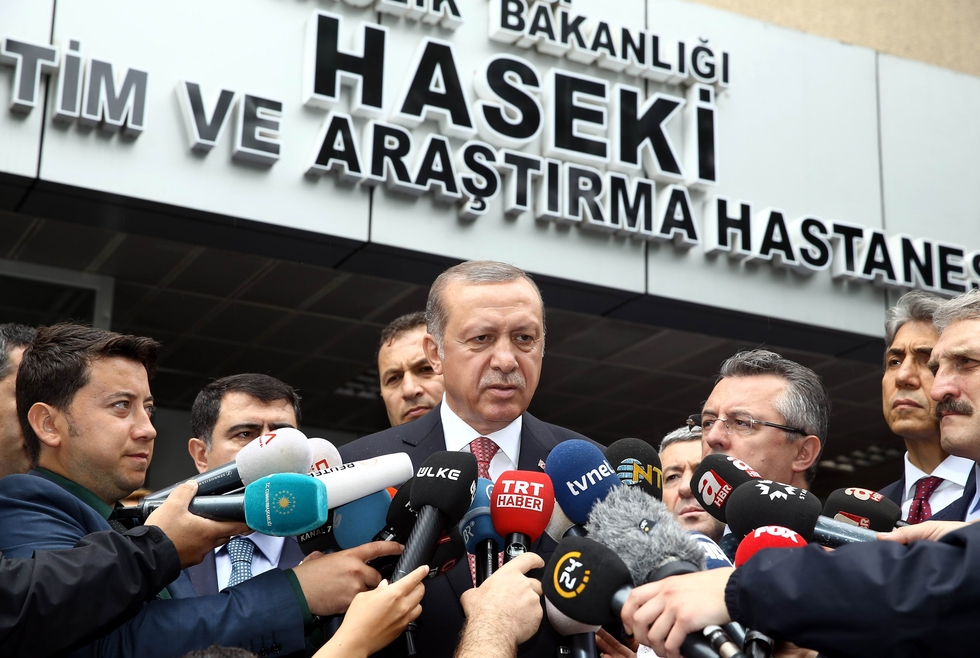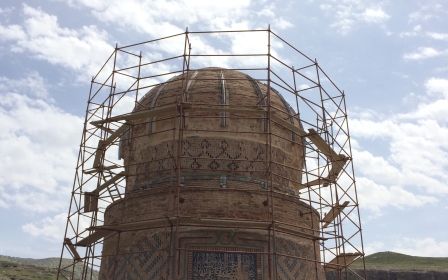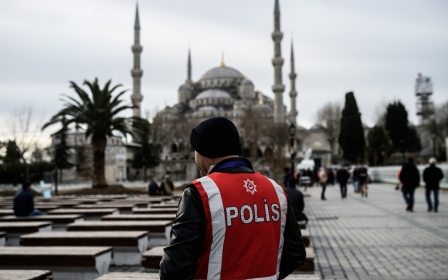Erdogan approves lifting parliamentary immunity for MPs
The new law lifts immunity from all Turkish MPs but it is viewed by many as targeting Kurdish representatives

Turkey's President Recep Tayyip Erdogan speaks to the media outside a hospital in Istanbul on 7 June 2016 after visiting people injured by a bomb attack that targeted a police bus in the Vezneciler district of Istanbul (AFP)
Published date: 8 June 2016 10:19 BST
|
Last update: 8 years 5 months ago
Turkish President Recep Tayyip Erdogan has signed into law a reform lifting immunity for lawmakers, his office said, in a move critics believe is aimed at evicting pro-Kurdish MPs from parliament.
Erdogan's approval came late Tuesday, less than a month after parliament adopted the highly controversial reform, which lifts the immunity of 138 deputies from all parties who face potential prosecution.
The left-wing Peoples' Democratic Party (HDP) says the measure, drafted and backed by Erdogan's Justice and Development Party (AKP), is squarely aimed at expelling its members from parliament.
Erdogan's government sees the HDP as a political front for the Kurdistan Workers' Party (PKK), considered a terrorist group by Ankara and its Western allies.
The reform could see dozens of HDP deputies facing criminal prosecution and losing parliamentary seats on accusations of supporting the PKK, which has waged a three-decade insurgency in the southeast.
Should a number of HDP deputies leave parliament, it would ease the way for Erdogan to realise his aim of changing the constitution to create a presidential system and further beef up his powers.
The HDP, the third largest party group in parliament, has said the bill, passed by parliament on 20 May, could lead to the prosecution of 50 of its deputies out of its total contingent of 59.
Earlier this month, the HDP's charismatic co-leader Selahettin Demirtas said he was "not afraid of being put on trial".
He said however that the accusations he and other party MPs faced stemmed from a search for "political revenge".
German Chancellor Angela Merkel last month told Erdogan of her "deep concern" over the law.
Following the collapse of a two-year ceasefire in mid-2015, Turkey has been waging an intense offensive against PKK militants in the country's southeast and the renewed conflict has claimed hundreds of lives.
On Tuesday a bomb ripped through a Turkish police bus near Istanbul's historic centre, killing seven officers and four civilians and injuring 36 people in the latest of a string of attacks in Turkey's biggest city.
New MEE newsletter: Jerusalem Dispatch
Sign up to get the latest insights and analysis on Israel-Palestine, alongside Turkey Unpacked and other MEE newsletters
Middle East Eye delivers independent and unrivalled coverage and analysis of the Middle East, North Africa and beyond. To learn more about republishing this content and the associated fees, please fill out this form. More about MEE can be found here.




